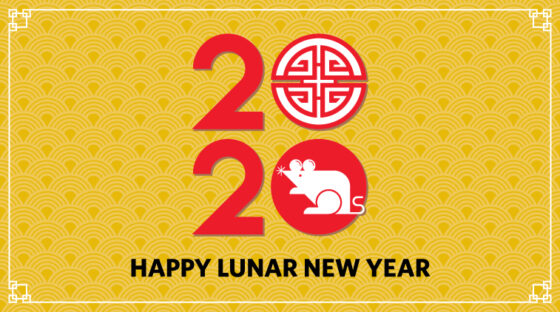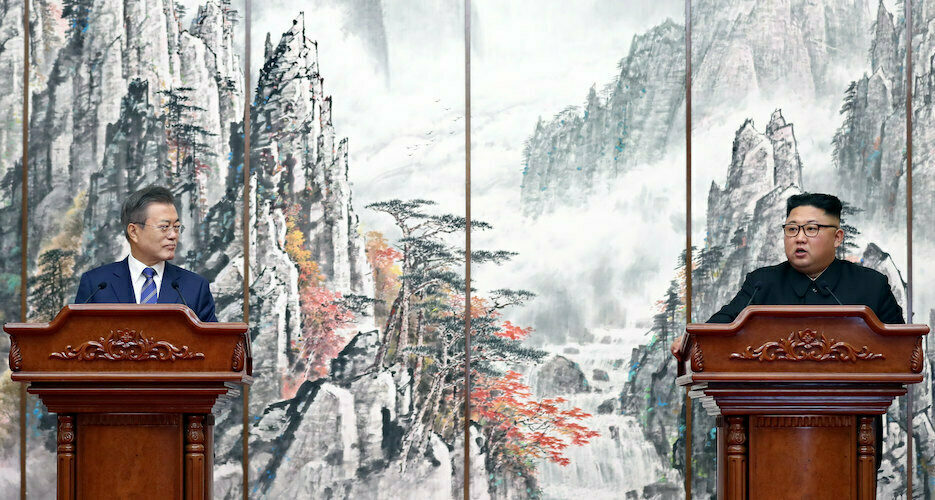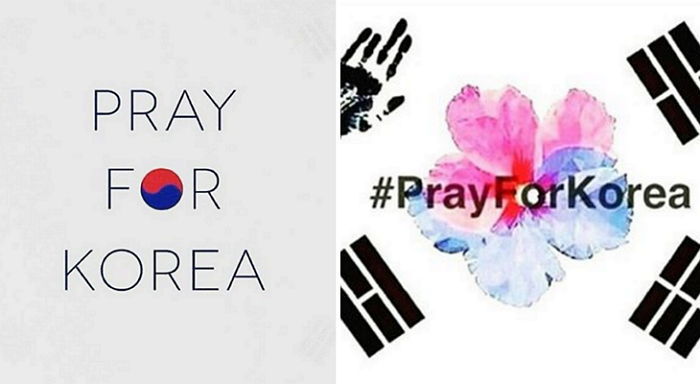Christians around the world celebrated the Christian Unity Prayer Week from January 18 to January 25, St. Paul the Apostle's Feast of Conversion. At this time Christians all over the world prayed together to overcome internal divisions and to be one in Christ.
The Catholic Weekly had a featured article on the efforts of the different Christian communities in Korea to work towards unity and solidarity among Christians.
Christianity after Jesus Christ was divided into various denominations. One of the big divisions came in 1054 with the Eastern and Western churches excommunicating each other and in the 16th-century with the "Reformation." Despite the fact that Jesus prayed, "Let these men be one, as the Father and I are one" (John 17:11). Christian unity, therefore, is the essence of the church, the missionary work of the church, bringing Christ's salvation to all.
Christianity after Jesus Christ was divided into various denominations. One of the big divisions came in 1054 with the Eastern and Western churches excommunicating each other and in the 16th-century with the "Reformation." Despite the fact that Jesus prayed, "Let these men be one, as the Father and I are one" (John 17:11). Christian unity, therefore, is the essence of the church, the missionary work of the church, bringing Christ's salvation to all.
But the movement for divided Christian unity did not begin until the 20th century. The Anglican Church began the Christian Unity Prayer Movement during the week of January 18-25, in 1908. At that time, January 18 was the feast of St. Peter the Apostle (now February 22), and Jan. 25 was the feast of the conversion of St. Paul. This implied that all churches will be one, centered on the Apostle Peter.
The Catholic Church took an active part in the ecumenical movement on the occasion of the Second Vatican Council's Decree on Ecumenism which provided a theological outlook for the Catholic and Protestant Churches to seek unity.
After 1967, Catholics with the Lutherans formed a joint committee to continue the theological dialogue, resulting in the 1999 joint declaration on the Doctrine of Justification; in 2006, a joint declaration on the doctrine of justification was signed with the Methodists.
The seeds of the Gospel have been in Korea for over 230 years. The Catholic Church first entered during the Joseon Dynasty period and shortly after incurred persecution; towards the end of the Joseon Dynasty, the Protestants came to Korea. The relationship between them was cold with little thought of cooperation and unity. The Protestants had added difficulty among themselves with many divisions.
However, the Second Vatican Council also sowed seeds of unity in Korea. In 1967, the Episcopal Conference and the Korean Christian Church Council held their first United Prayer Meeting.
Since 1986, the Unity Prayer Movement began with the participation of the Korean Orthodox Church and the Christian Korean Lutheran Society. Since then, ecumenism has expanded with the participation of various denominations, expanding into denominational exchanges such as ecumenical forums, theological dialogue, and exchanges of theological students.
In January 1968, Catholics and Protestants organized a translation committee to carry out a joint translation of the Bible project. As a result, the Common Bible was published around Resurrection Day in 1977.
As recent as 2017 the Vatican and the Lutheran Federation wrote together From Conflict to Communion and Korean Catholic and Protestant theologians together translated the document, the first after the translation of the Bible in 1977.
.
However, the Second Vatican Council also sowed seeds of unity in Korea. In 1967, the Episcopal Conference and the Korean Christian Church Council held their first United Prayer Meeting.
Since 1986, the Unity Prayer Movement began with the participation of the Korean Orthodox Church and the Christian Korean Lutheran Society. Since then, ecumenism has expanded with the participation of various denominations, expanding into denominational exchanges such as ecumenical forums, theological dialogue, and exchanges of theological students.
In January 1968, Catholics and Protestants organized a translation committee to carry out a joint translation of the Bible project. As a result, the Common Bible was published around Resurrection Day in 1977.
As recent as 2017 the Vatican and the Lutheran Federation wrote together From Conflict to Communion and Korean Catholic and Protestant theologians together translated the document, the first after the translation of the Bible in 1977.
.



